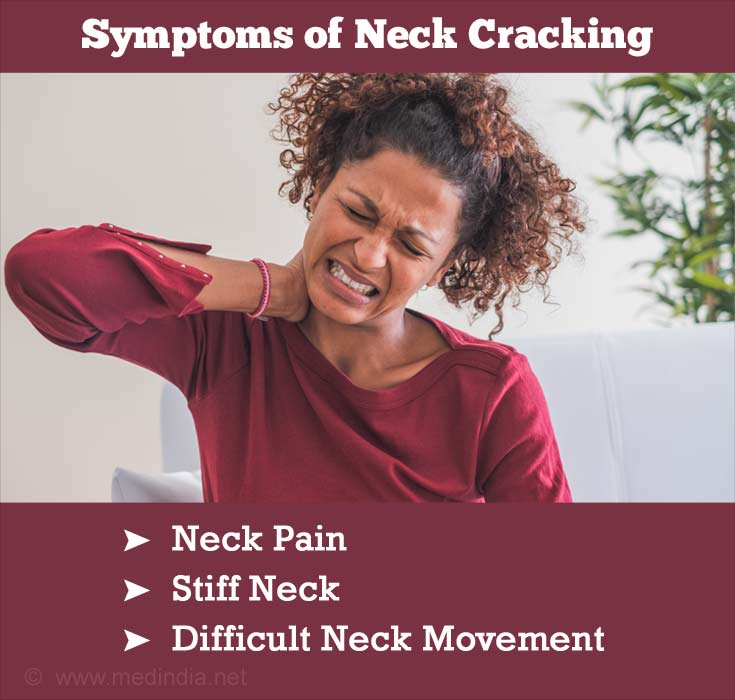What are the Symptoms of Neck Cracking?
- Stiffness in the neck, shoulder and upper chest
- Pain in the neck
- Neck crepitus or a popping sound when the neck is moved in a specific direction
- Difficult neck movement in any particular direction

What are the Benefits and Risks of Neck Cracking?
Neck cracking benefits are:
- It helps relieve muscle tension
- Positive mental effect - Just hearing the sound of joint cracking can make you feel better as these sounds are associated with the release of pressure and proper re-adjustment of a joint
- Release of endorphins in the area of your neck joints - Endorphins help manage pain and give you a feeling of contentment. This could be the reason why some people do neck cracking all the time
Risks of neck cracking are:
- Nerve injury - Frequent and forceful neck cracking can pinch the nerves in your neck and result in very painful neck movements
- Muscle injury - Strain and spasm of neck muscles may be caused by repeated irritation to the muscles
- Joint instability and hypermobility - Repeated popping of the joint may lead to joint instability as it causes the ligaments to become lax, lose their shape and become permanently stretched. This also results in a wider range of movement
- Injury to the spinal cord - If you crack your neck too forcefully, a spinal cord injury can result
- Puncture of blood vessels - Though rare, forceful neck movements, can damage the vertebral artery and form a blood clot within the blood vessel which may result in a stroke
- Osteoarthritis - Cracking the neck regularly puts lots of pressure on the joints and may lead to the ends of bones becoming weaker
- Fracture - May occur especially in older people
- Disc injury - Applying force to an existing disc hernia may lead to increased pain and other symptoms such as numbness and tingling in the extremities








